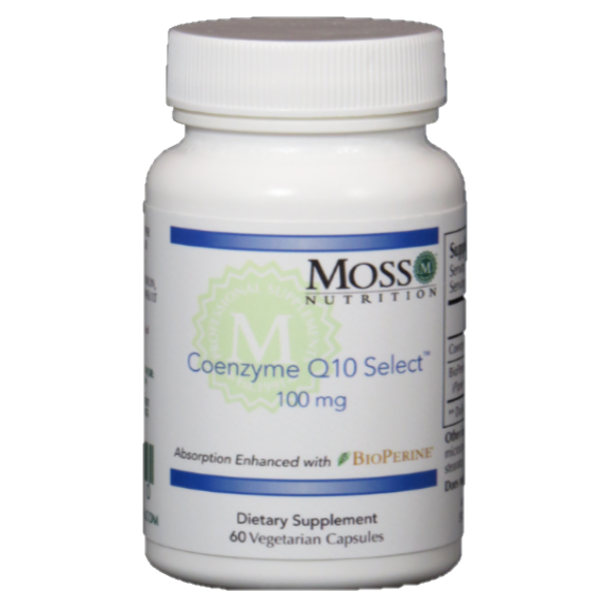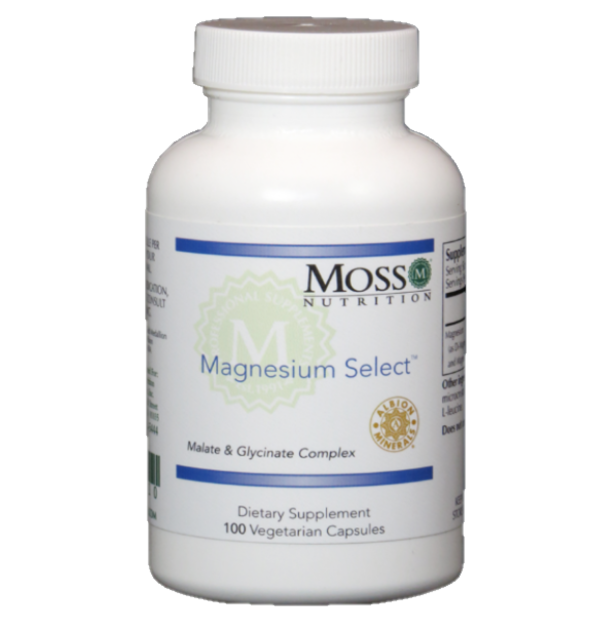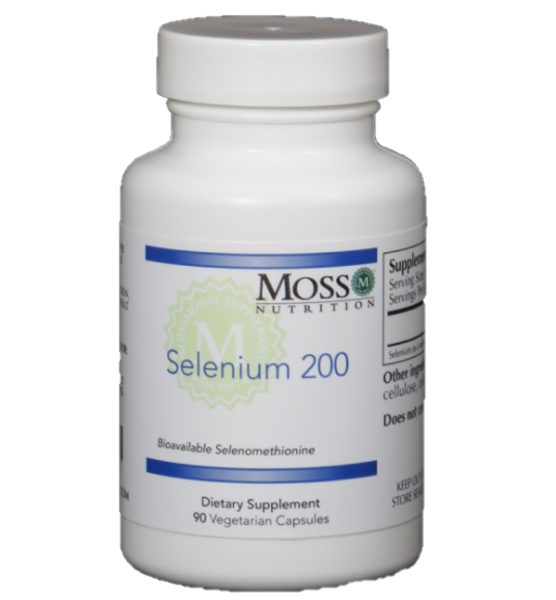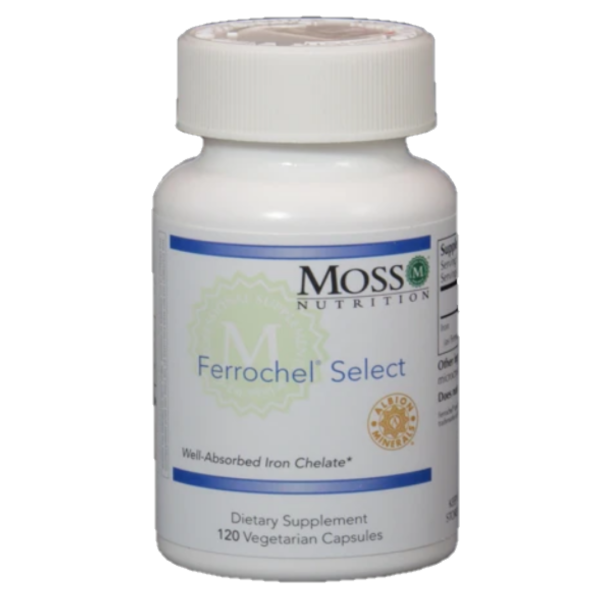
Thyroid hormone replacement medication, like levothyroxine (Synthroid), is prescribed when your thyroid gland isn’t making enough thyroid hormone. The medication provides needed thyroid hormone, which helps with symptoms of hypothyroidism, like fatigue, weight gain, or hair loss.
If you take Synthroid and you’ve ever wondered how long you can go without thyroid medication, you’re not alone. Generally, if you take a synthetic thyroid hormone like Synthroid and accidentally skip a dose, there’s little harm. But not taking your thyroid medication for longer periods of time can lead to bigger problems and long-term risks.
On the other hand, overdiagnosis and overtreatment of hypothyroid are very common. 1 Additionally, with the right health support, some patients may be able to reduce or discontinue their thyroid hormone replacement. In this article, we’ll help you answer the question, “How long can you go without thyroid medication?”
Skipping a Dose
If you miss your dose of synthetic thyroid hormone (Levothyroxine), don’t panic. Supplemental T4 hormone circulates in your blood for several days, so one missed dose won’t harm you.
Synthetic thyroid hormone (Levothyroxine) does work best if you take it consistently, on an empty stomach, and at the same time every day. It’s a good idea to develop good daily medication habits.
However, if you forget to take your thyroid medication on time, it’s generally OK to take it later in the day. The exception is if you missed a dose by more than 10 or 12 hours, in which case you should wait until your next scheduled dose.
Note: If you had a thyroidectomy due to thyroid cancer or radioactive iodine therapy for Grave’s disease, your body no longer produces thyroid hormones. In this case, staying on top of your thyroid medication schedule is even more important. Missed doses of thyroid medication could lead to a noticeable increase in thyroid symptoms, such as fatigue, feeling cold, dry skin, and weight gain.
Discontinuing Thyroid Medication
If you are truly hypothyroid, discontinuing your thyroid medication for a longer period of time can have serious consequences. Within a few days to weeks, you can expect symptoms of hypothyroidism, including:
- Fatigue
- Brain fog
- Depression and/or anxiety
- Constipation
- Dry skin and hair
- Hair loss
- Weight gain
Longer term, untreated hypothyroidism can lead to more serious problems like heart disease, infertility, and cognitive issues. Severe hypothyroidism can lead to Myxedema coma, a potentially fatal slowing of metabolism. Fortunately, this condition is rare.
There’s no good reason to let overt hypothyroidism go untreated. Standard T4 hormone replacement is a safe medication with few side effects when taken at the correct dosage.
How Well Are You Absorbing Your Thyroid Medication?
Certain foods, medications, or health conditions can cause you to absorb your thyroid hormone poorly, effectively lowering your dose.
According to a 2017 research review, the following can decrease your ability to absorb the thyroid hormone levothyroxine 2:
- Gastrointestinal disorders, such as celiac disease, lactose intolerance, and H. pylori infection. 3 4 5 6
- Soybeans
- Coffee
- Certain medications: cholestyramine, colesevelam, ciprofloxacin, aluminum hydroxide, sevelamer, or proton pump inhibitors
- Certain supplements: calcium carbonate, calcium citrate, calcium acetate, and iron sulfate
Vitamin C was found to increase thyroid medication absorption. 7
The treatment of GI disorders can lead to increased absorption of thyroid medication. 8 This can also happen when you change your medication or even your diet.
Better absorption can lead to too much thyroid hormone. If you take a medication like Synthroid and notice symptoms of hyperthyroidism (palpitations, anxiety, weight loss, and even high blood pressure), have your doctor test your thyroid hormone levels.
For patients who cannot resolve the reason for poor medication absorption, liquid T4 may be a better choice than standard T4 medication.

Thyroid Medication Is Overprescribed
A subset of people who take thyroid hormone replacement would likely be better off without this medication, as overdiagnosis of hypothyroid conditions is very common. 9 10
One study showed up to 60% of patients may be taking thyroid hormone replacement unnecessarily. 11 In this study, 291 patients taking Levothyroxine (Synthroid) were asked to pause their medication for 6-8 weeks. Many of these patients had been taking thyroid medication for years but did not have strong diagnostic indicators of thyroid disease.
- After going without synthetic thyroid hormone for several weeks, patients were given blood tests for thyroid function. 60.8% of patients had normal levels of thyroid hormone, meaning they did not require thyroid medication.

When Medication Is and Isn’t Required
Standard blood tests for TSH (thyroid-stimulating hormone) and free T4 are very reliable indicators of who needs thyroid hormone replacement 12:
- TSH levels are abnormally high, and your free T4 levels are abnormally low: This means you have true hypothyroidism. T4 medication is required.
- Slightly elevated TSH levels and normal free T4: This is called subclinical hypothyroid. This is an early form of hypothyroidism and requires monitoring but not T4 medication.
- Low free T3: This is a sign of inflammation, digestive issues, or a diet too low in carbs or calories. T3 medication is not normally required.
- Elevated thyroid antibodies with normal thyroid hormone levels: In this case, you do not need thyroid hormone replacement. Hashimoto’s disease does not always lead to hypothyroidism. 13 14
- Low free T4 and normal TSH: This is a sign of dysfunction in the pituitary gland. Consult an endocrinologist.
Whether your thyroid condition requires medication or not, many thyroid conditions can be improved through better gut health. 15 16 17 18 19 20 21
Alternative Thyroid Medications
Online search results often recommend alternative thyroid medications like Armour Thyroid and T4/T3 combination therapy. While alternative thyroid meds have their place, their potential for resolving thyroid problems is often overstated. 22
Additionally, thyroid hormone replacement therapy helps to balance your hormones, but it doesn’t get to the root cause of thyroiditis and autoimmunity.
Don’t chase the next miracle supplement or the best thyroid medication. Thyroid patients do better when they follow a simple, step-by-step process that addresses health fundamentals first:
- If you are truly hypothyroid, get on standard thyroid hormone replacement.
- If thyroid medication alone doesn’t resolve your symptoms, take steps to improve your gut health.
- Once your gut is in better shape, fine-tune your medications and thyroid supplements.
Bottom Line
Many people with thyroid issues wonder, “How long can you go without thyroid medication?”
While it’s good to develop a consistent routine for taking your thyroid medication, it’s generally not a problem to occasionally miss a dose.
Standard thyroid medication like Synthroid is generally safe and effective when used in the right doses. Note that improving your gut health may help you absorb your medication.
Keep in mind there’s more to thyroid health than maintaining your thyroid hormone levels. For example, thyroid disorders like Hashimoto’s disease are a sign of imbalances such as gut dysbiosis, gut infections, and immune dysfunction. If you take steps to improve your gut health, your thyroid gland will likely benefit.
For professional help with your thyroid health, schedule an appointment at our center for functional health.
Dr. Michael Ruscio is a DC, natural health provider, researcher, and clinician. He serves as an Adjunct Professor at the University of Bridgeport and has published numerous papers in scientific journals as well as the book Healthy Gut, Healthy You. He also founded the Ruscio Institute of Functional Health, where he helps patients with a wide range of GI conditions and serves as the Head of Research.
➕ References
-
Livadas S, Bothou C, Androulakis I, Boniakos A, Angelopoulos N, Duntas L. Levothyroxine Replacement Therapy and Overuse: A Timely Diagnostic Approach. Thyroid. 2018 Nov 30. doi: 10.1089/thy.2018.0014. Epub ahead of print. PMID: 30351232.
-
Skelin M, Lucijanić T, Amidžić Klarić D, Rešić A, Bakula M, Liberati-Čizmek AM, Gharib H, Rahelić D. Factors Affecting Gastrointestinal Absorption of Levothyroxine: A Review. Clin Ther. 2017 Feb;39(2):378-403. doi: 10.1016/j.clinthera.2017.01.005. Epub 2017 Jan 30. PMID: 28153426.
-
Ribichini D, Fiorini G, Repaci A, Castelli V, Gatta L, Vaira D, Pasquali R. Tablet and oral liquid L-thyroxine formulation in the treatment of naïve hypothyroid patients with Helicobacter pylori infection. Endocrine. 2017 Sep;57(3):394-401. doi: 10.1007/s12020-016-1167-3. Epub 2016 Nov 15. PMID: 27848196.
-
Bugdaci MS, Zuhur SS, Sokmen M, Toksoy B, Bayraktar B, Altuntas Y. The role of Helicobacter pylori in patients with hypothyroidism in whom could not be achieved normal thyrotropin levels despite treatment with high doses of thyroxine. Helicobacter. 2011 Apr;16(2):124-30. doi: 10.1111/j.1523-5378.2011.00830.x. Erratum in: Helicobacter. 2011 Dec;16(6):482. Albayrak, Banu [corrected to Bayraktar, Banu]. PMID: 21435090.
-
Centanni M, Gargano L, Canettieri G, Viceconti N, Franchi A, Delle Fave G, Annibale B. Thyroxine in goiter, Helicobacter pylori infection, and chronic gastritis. N Engl J Med. 2006 Apr 27;354(17):1787-95. doi: 10.1056/NEJMoa043903. PMID: 16641395.
-
Talebi S, Karimifar M, Heidari Z, Mohammadi H, Askari G. The effects of synbiotic supplementation on thyroid function and inflammation in hypothyroid patients: A randomized, double‑blind, placebo‑controlled trial. Complement Ther Med. 2020 Jan;48:102234. doi: 10.1016/j.ctim.2019.102234. Epub 2019 Nov 3. PMID: 31987229.
-
Skelin M, Lucijanić T, Amidžić Klarić D, Rešić A, Bakula M, Liberati-Čizmek AM, Gharib H, Rahelić D. Factors Affecting Gastrointestinal Absorption of Levothyroxine: A Review. Clin Ther. 2017 Feb;39(2):378-403. doi: 10.1016/j.clinthera.2017.01.005. Epub 2017 Jan 30. PMID: 28153426.
-
Bugdaci MS, Zuhur SS, Sokmen M, Toksoy B, Bayraktar B, Altuntas Y. The role of Helicobacter pylori in patients with hypothyroidism in whom could not be achieved normal thyrotropin levels despite treatment with high doses of thyroxine. Helicobacter. 2011 Apr;16(2):124-30. doi: 10.1111/j.1523-5378.2011.00830.x. Erratum in: Helicobacter. 2011 Dec;16(6):482. Albayrak, Banu [corrected to Bayraktar, Banu]. PMID: 21435090.
-
Melville, N. A. (2019, May 16). Mild Hypothyroidism Being Overtreated, Avoid Pills, Says Panel. Medscape Medical News.
-
Livadas S, Bothou C, Androulakis I, Boniakos A, Angelopoulos N, Duntas L. Levothyroxine Replacement Therapy and Overuse: A Timely Diagnostic Approach. Thyroid. 2018 Nov 30. doi: 10.1089/thy.2018.0014. Epub ahead of print. PMID: 30351232.
-
Livadas S, Bothou C, Androulakis I, Boniakos A, Angelopoulos N, Duntas L. Levothyroxine Replacement Therapy and Overuse: A Timely Diagnostic Approach. Thyroid. 2018 Nov 30. doi: 10.1089/thy.2018.0014. Epub ahead of print. PMID: 30351232.
-
Sheehan MT. Biochemical Testing of the Thyroid: TSH is the Best and, Oftentimes, Only Test Needed – A Review for Primary Care. Clin Med Res. 2016 Jun;14(2):83-92. doi: 10.3121/cmr.2016.1309. Epub 2016 May 26. PMID: 27231117; PMCID: PMC5321289.
-
Ehlers M, Jordan AL, Feldkamp J, Fritzen R, Quadbeck B, Haase M, Allelein S, Schmid C, Schott M. Anti-Thyroperoxidase Antibody Levels >500 IU/ml Indicate a Moderately Increased Risk for Developing Hypothyroidism in Autoimmune Thyroiditis. Horm Metab Res. 2016 Sep;48(10):623-629. doi: 10.1055/s-0042-112815. Epub 2016 Sep 8. PMID: 27607246.
-
Amouzegar A, Gharibzadeh S, Kazemian E, Mehran L, Tohidi M, Azizi F. The Prevalence, Incidence and Natural Course of Positive Antithyroperoxidase Antibodies in a Population-Based Study: Tehran Thyroid Study. PLoS One. 2017 Jan 4;12(1):e0169283. doi: 10.1371/journal.pone.0169283. PMID: 28052092; PMCID: PMC5215694.
-
Bertalot G, Montresor G, Tampieri M, Spasiano A, Pedroni M, Milanesi B, Favret M, Manca N, Negrini R. Decrease in thyroid autoantibodies after eradication of Helicobacter pylori infection. Clin Endocrinol (Oxf). 2004 Nov;61(5):650-2. doi: 10.1111/j.1365-2265.2004.02137.x. PMID: 15521972.
-
Ribichini D, Fiorini G, Repaci A, Castelli V, Gatta L, Vaira D, Pasquali R. Tablet and oral liquid L-thyroxine formulation in the treatment of naïve hypothyroid patients with Helicobacter pylori infection. Endocrine. 2017 Sep;57(3):394-401. doi: 10.1007/s12020-016-1167-3. Epub 2016 Nov 15. PMID: 27848196.
-
Bugdaci MS, Zuhur SS, Sokmen M, Toksoy B, Bayraktar B, Altuntas Y. The role of Helicobacter pylori in patients with hypothyroidism in whom could not be achieved normal thyrotropin levels despite treatment with high doses of thyroxine. Helicobacter. 2011 Apr;16(2):124-30. doi: 10.1111/j.1523-5378.2011.00830.x. Erratum in: Helicobacter. 2011 Dec;16(6):482. Albayrak, Banu [corrected to Bayraktar, Banu]. PMID: 21435090.
-
Centanni M, Gargano L, Canettieri G, Viceconti N, Franchi A, Delle Fave G, Annibale B. Thyroxine in goiter, Helicobacter pylori infection, and chronic gastritis. N Engl J Med. 2006 Apr 27;354(17):1787-95. doi: 10.1056/NEJMoa043903. PMID: 16641395.
-
Asik M, Gunes F, Binnetoglu E, Eroglu M, Bozkurt N, Sen H, Akbal E, Bakar C, Beyazit Y, Ukinc K. Decrease in TSH levels after lactose restriction in Hashimoto’s thyroiditis patients with lactose intolerance. Endocrine. 2014 Jun;46(2):279-84. doi: 10.1007/s12020-013-0065-1. PMID: 24078411.
-
Virili C, Bassotti G, Santaguida MG, Iuorio R, Del Duca SC, Mercuri V, Picarelli A, Gargiulo P, Gargano L, Centanni M. Atypical celiac disease as cause of increased need for thyroxine: a systematic study. J Clin Endocrinol Metab. 2012 Mar;97(3):E419-22. doi: 10.1210/jc.2011-1851. Epub 2012 Jan 11. PMID: 22238404.
-
Rajič B, Arapović J, Raguž K, Bošković M, Babić SM, Maslać S. Eradication of Blastocystis hominis prevents the development of symptomatic Hashimoto’s thyroiditis: a case report. J Infect Dev Ctries. 2015 Jul 30;9(7):788-91. doi: 10.3855/jidc.4851. PMID: 26230132.
-
Wiersinga WM. L-T4 and L-T3 combined treatment vs L-T4 alone. Ann Endocrinol (Paris). 2007 Sep;68(4):216-9. doi: 10.1016/j.ando.2007.06.008. Epub 2007 Aug 8. PMID: 17689474.
➕ Links & Resources
More about Thyroid Health:
- What Does Your Thyroid Do?
- What Are Optimal Thyroid Levels?
- Do You Need a Thyroid Detox?
- What Does Pain in the Thyroid Mean?
- What Causes Thyroiditis?
- Low Iodine Diet: Improve Hypothyroidism
- When Should I Worry About My Thyroid Nodule?
- What Causes Thyroid Nodules To Grow?
- How Should I Use Thyroid Supplements?
- The Gut-Thyroid Connection
- What are Healthy Levels for Thyroid Antibodies?
- Find Your Ideal Thyroid Medication in 4 Simple Steps







Discussion
I care about answering your questions and sharing my knowledge with you. Leave a comment or connect with me on social media asking any health question you may have and I just might incorporate it into our next listener questions podcast episode just for you!